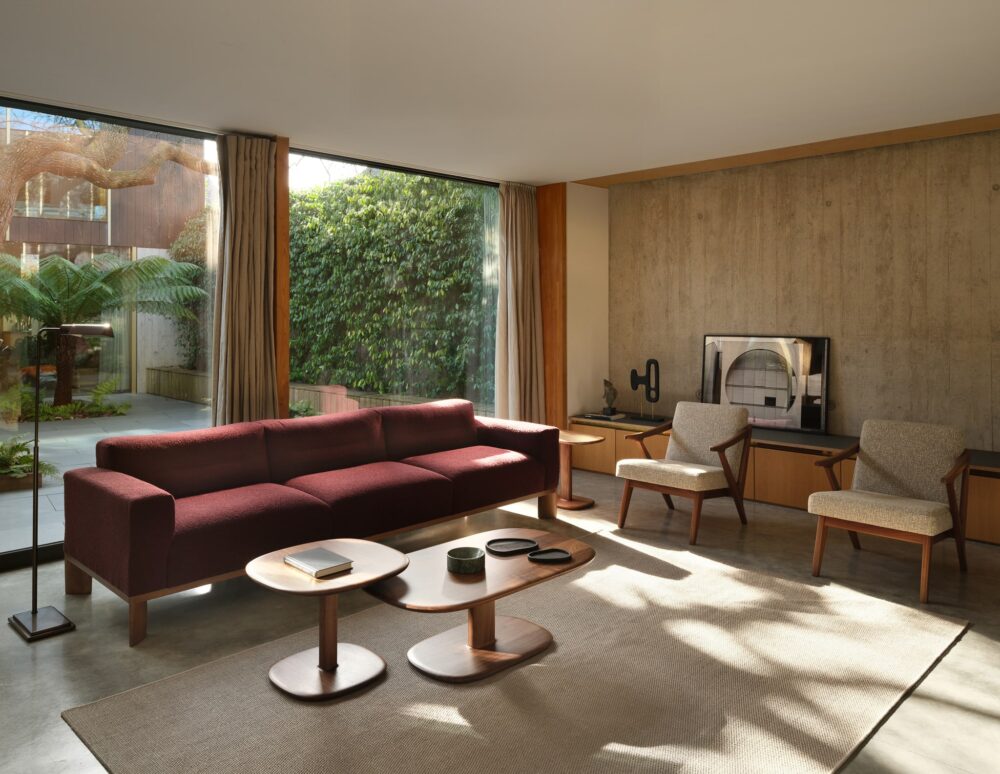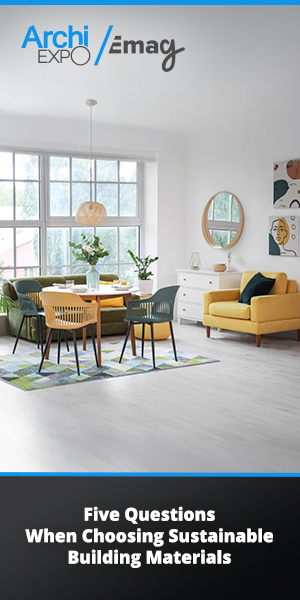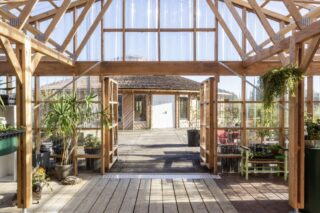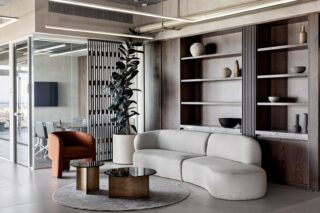Morgan’s Design Director Erin Johnson on the brand’s vision of longevity, material integrity, and circular manufacturing.
As the design world grapples with the urgent need to reduce waste, circular manufacturing has emerged as an important strategy. Circular systems emphasize reuse, durability, and ethical sourcing, and for UK-based furniture maker Morgan, this approach isn’t a trend–it’s embedded in their DNA.
Founded over 30 years ago, Morgan has always balanced a respect for traditional craftsmanship with a forward-thinking approach to sustainable design. With the goal to elevate commercial spaces through timeless furniture design, they have been leading with creativity, craftsmanship, and care. Morgan’s collections are known to endure aesthetically and physically. Each piece is thoughtfully produced in their Hampshire-based studio, where a hands-on approach allows for agile production and responsible manufacturing practices.
At the heart of this mission is Erin Johnson, who has been with the brand for more than 16 years and now serves as Design Director. In a conversation with ArchiExpo e-Magazine, Johnson reflects on the company’s commitment to circular manufacturing and introduces their newest launch: the Bruton collection, created in collaboration with SmithMatthias.
READ: 7 Stages of Product Development Cycle in Circular Economy, published by International Institute for Management Development (IMD). “In a circular model, the focus shifts from simply delivering a product to ensuring that its entire life cycle – from raw material sourcing to post-use disposal – is optimized for resource efficiency and sustainability.”
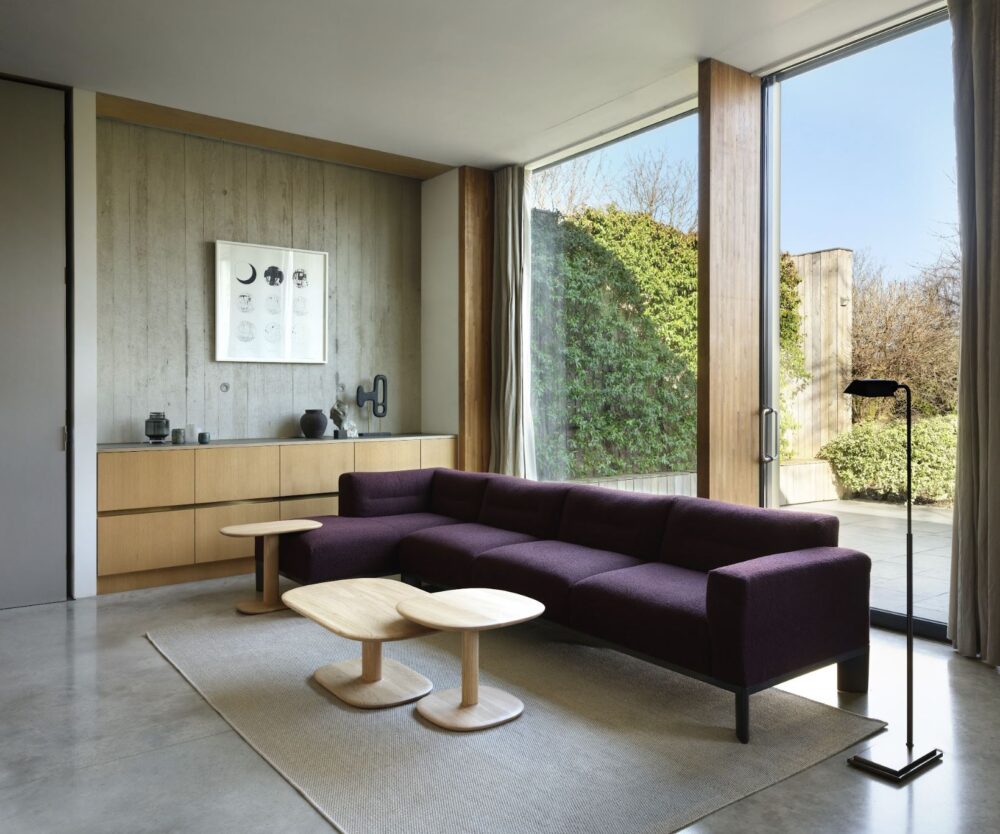
Framework of Care: Morgan’s Circular Approach to Material Use
Morgan’s ethos centers on thoughtful production, maintaining transparency throughout the entire process. Their in-house model is what Johnson describes as a “framework of care,” a philosophy built on reducing, reusing, and recycling materials. Circular manufacturing—now gaining traction across the design world—is at the heart of this philosophy.
“This framework of care allows us to create original, investment pieces with a conscience–collections that stand the test of time and don’t contribute to landfill,” she shares.
The company’s Hampshire studio brings the design and manufacturing teams under one roof, allowing for real-time prototyping and establishing a streamlined, lean production model to have less reliance on electricity.
“For us, sustainability goes beyond materials. It’s also about how we manufacture: a lean process that starts with knowing the provenance of the trees and timber we use. With the design studio and factory under one roof, we’re able to prototype and refine ideas quickly,” Johnson explains.
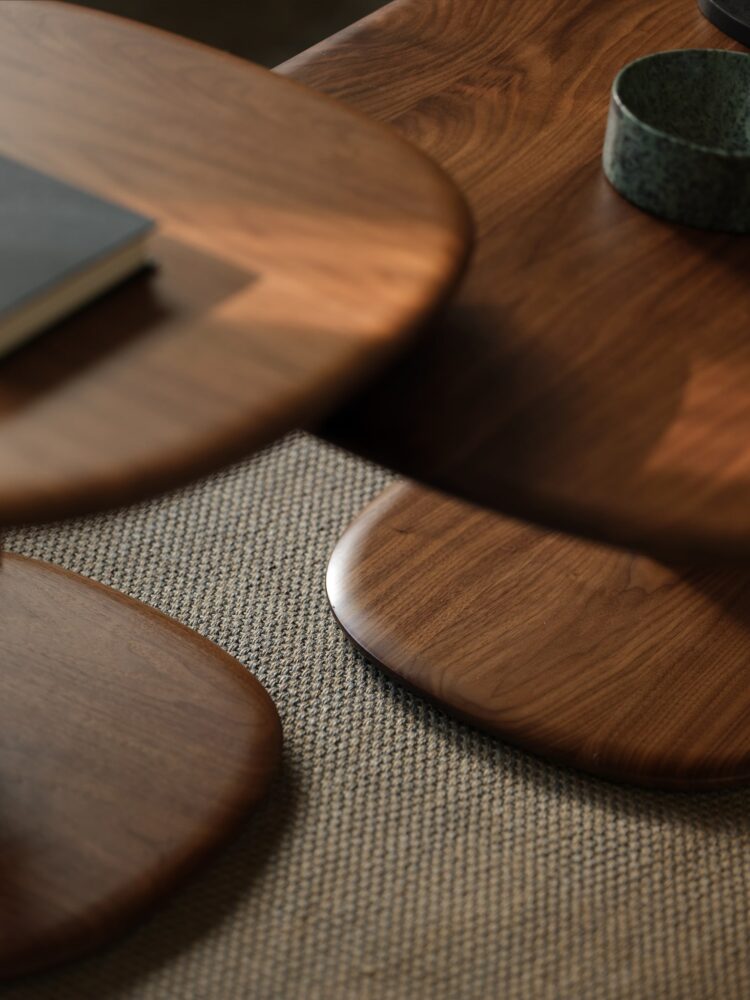
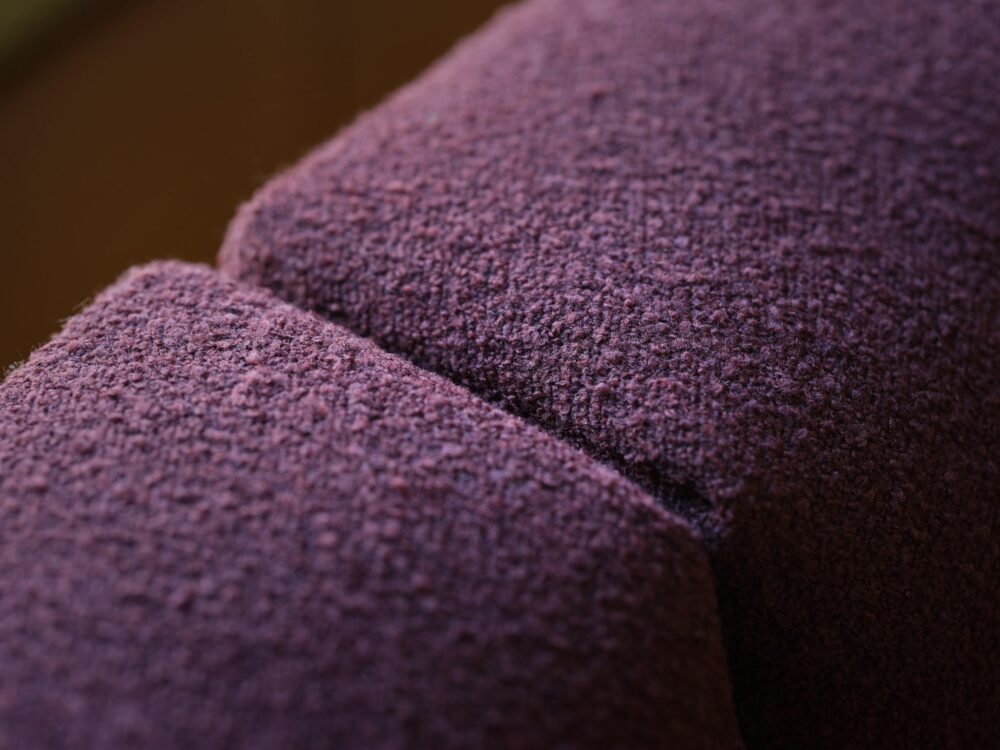
This process is incredibly meticulous. They source their natural materials from their UK supply chain, although the origin of the virgin material cannot always be UK-based, like coconut. “However, we are extremely stringent in checking our suppliers’ supply chain to ensure ethical extraction of these natural materials and also a sustainable approach to the growth and supply for the future,” she shares.
“When possible, we encourage the re-use of items such as undamaged packaging, whilst also encouraging our clients to make use of our re-upholstery and re-finishing services, rather than buying new materials each time. The small amount of waste that we create is segregated for each specific recycling waste stream: paper, card, metal, and plastic.”
The team is constantly striving to maximize longevity and reduce the energy consumption of raw materials, water, and energy.
“Being family-owned means integrity, longevity, and a thoughtful pace are ingrained into everything we do,” says Johnson. “This makes innovation feel natural.”
The Bruton Collection: A Natural Evolution for Morgan Furniture
Morgan’s circularity strategy begins at the concept stage, where products are designed with longevity in mind. A good example of this is their recent Bruton collection, made in collaboration with SmithMatthias.
Bruton is a foam-free modular seating collection designed with both comfort and environmental impact in mind. The collection includes a modular sofa system featuring a single and two-seater modules, an inline coffee table and ottomans, a stand-alone chaise longue, and a two-seater sofa.
“Bruton’s upholstery and filling are made from consciously selected natural materials, including wool, coconut coir, springs, and feather, which meet contract fire standards,” shares Johnson, adding, “The commitment to natural materials presented a huge challenge, but it also informed the design in exciting ways. We’ve pushed traditional upholstery materials, such as springs and wool, to their limits, redefining their use in a contemporary way.”
Sustainability as an Expectation, not a Bonus
The collaboration with SmithMatthias for the Bruton collection came organically, as their shared values immediately came to mind.
“The studio’s experience, values, and knowledge resonated with us. They share our passion for sustainable thinking and materials, and their refined approach to design felt like a natural fit,” she explains.
Founded by husband and wife duo Jack Smith and Gemma Matthias, SmithMatthias draws inspiration from nature and traditional materials, focusing on longevity in their designs rather than trends.
“It was a truly collaborative process, built on shared values and mutual respect,” Johnson says.
Morgan is continuing its exploration of sustainable materials and finishes, an ongoing pursuit driven by a shifting industry mindset. The studio offers a clear blueprint to produce less, design better, and keep pieces in use for as long as possible.
“We’re seeing that sustainability is no longer a bonus–it’s an expectation,” Johnson says. “Clients are looking for considered, conscious design as standard, and that’s driving thoughtful innovation across our entire offering.”
